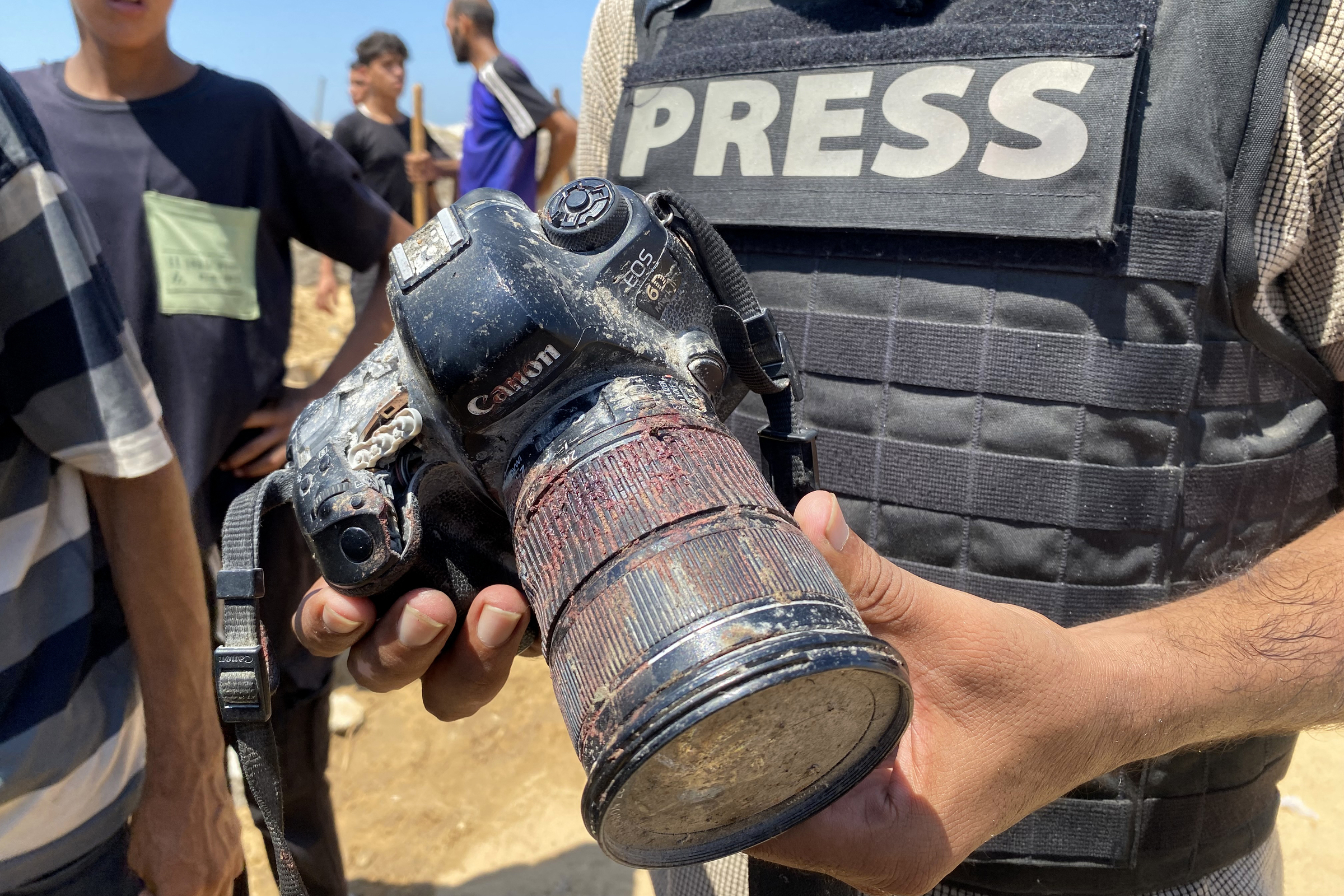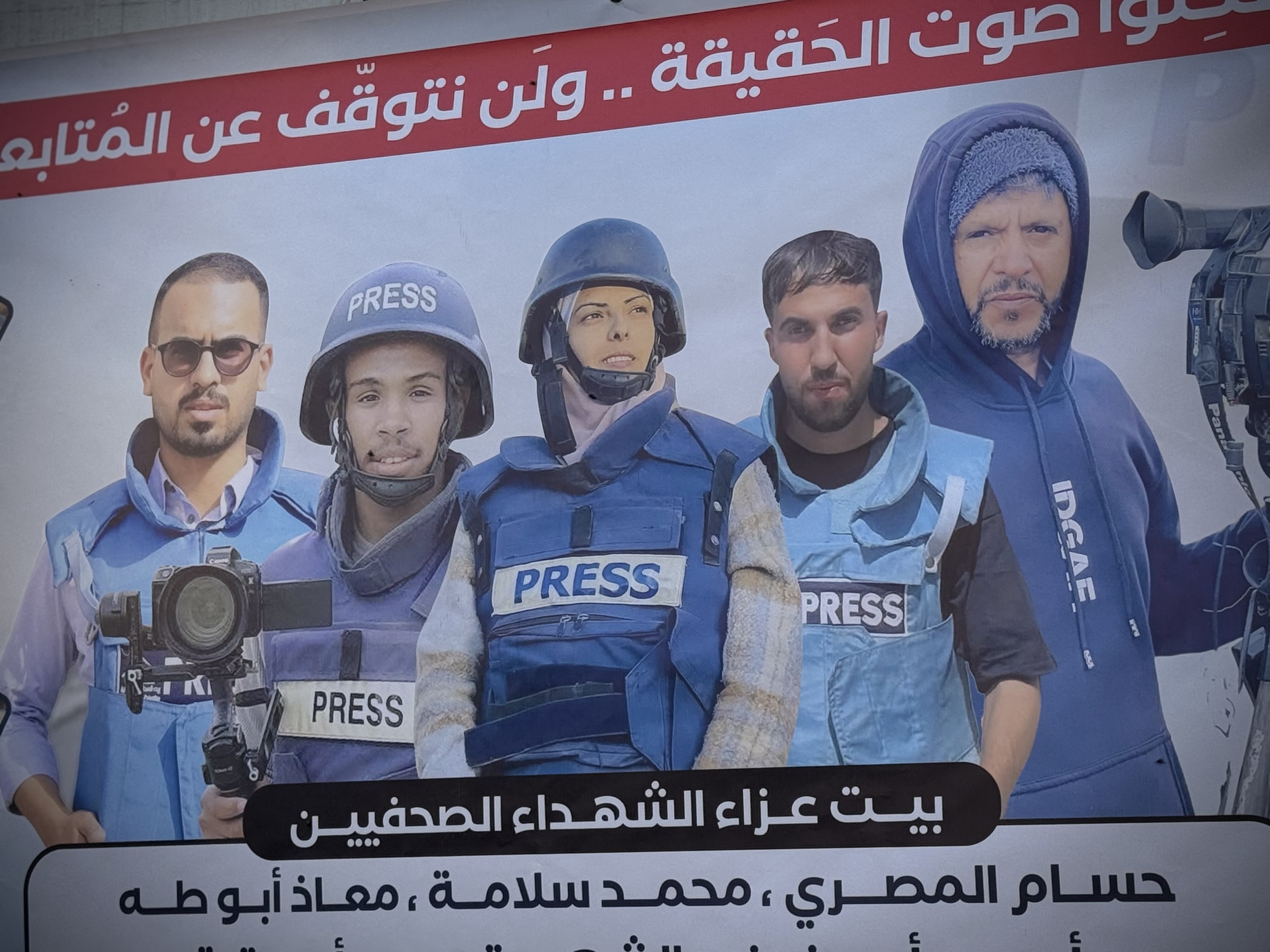On 10/8, the Israel Defense Forces (IDF) attacked a media tent in Gaza City, killing five journalists, including Al Jazeera reporter Anas al-Sharif. The attack sparked outrage and condemnation from media organizations, international bodies, and various countries.
Facing intense backlash, the IDF claimed to have "information that al-Sharif was a Hamas member and received a salary from the group." The IDF used a similar argument months earlier in July 2024 when they killed Palestinian journalist Ismail al-Ghoul and his cameraman, alleging al-Ghoul was a "member of Hamas' special forces."
On 11/8, Israeli investigative journalist Yuval Abraham reported that Israeli military intelligence had established a special unit called "The Justification Complex" to legitimize attacks in Gaza, particularly the killings of journalists.
"The Justification Complex operates within the Military Intelligence Directorate (AMAN)," Abraham stated. "Its members search for any information to 'justify' military actions in Gaza... Their primary mission is to identify Gaza journalists who can be portrayed in the media as hidden Hamas operatives."
Analysts suggest this is a deliberate Israeli military strategy to "criminalize" Palestinian reporting. "I believe they killed Anas al-Sharif simply because he was a journalist. It's the same reason they bar international media from Gaza, to better conceal their crimes," Abraham said.
The independent Israeli news site +972 Magazine reported that "The Justification Complex" was formed after Hamas's 7/10/2023 attack on Israel, which resulted in significant casualties and the capture of over 250 people. Israel subsequently launched a retaliatory operation in Gaza aimed at eliminating the militant group and rescuing hostages.
The IDF's motivation for establishing "The Justification Complex" is not security, but media control. They view media as an extension of the battlefield, used to disseminate information to the public. Israeli officials believe Gaza journalists are "tarnishing Israel's image globally" and must be dealt with, according to sources.
"The Justification Complex" gathers intelligence from Gaza that reinforces Israel's image internationally, often focusing on Hamas's alleged use of civilian infrastructure for military purposes and failed rocket launches harming civilians.
"The primary mission of 'The Justification Complex' is to sabotage the work of Palestinian journalists, creating pretexts for their assassination," political scientist Ahron Bregman told France 24.
 |
A journalist holds the bloodstained camera of Mariam Dagga, a Palestinian photojournalist killed in an Israeli airstrike on Khan Younis, southern Gaza, on 25/8. Photo: AFP |
A journalist holds the bloodstained camera of Mariam Dagga, a Palestinian photojournalist killed in an Israeli airstrike on Khan Younis, southern Gaza, on 25/8. Photo: AFP
Information gathered by "The Justification Complex" is frequently relayed to the US through direct channels, aiming to allow the IDF to continue operations without international pressure and ensure allies like the US maintain arms supplies.
The unit monitors news reports from Gaza, issuing rebuttals on social media and international news outlets. "If the international media discusses Israel killing a journalist, they'll strive to find a 'guilty' party, somehow making the killing of 20 others acceptable," an intelligence source said.
The IDF declined to comment on "The Justification Complex." In al-Sharif's case, they released documents claiming he was a Hamas member since 2013. Even if true, the documents only show al-Sharif's last contact with Hamas was in 2017, years before the Gaza conflict.
Al-Sharif, 28, reported for months from northern Gaza on famine and relentless Israeli attacks. "I have never hesitated, not even for a day, in conveying the truth as it is, without distortion or manipulation," he wrote in a message before his death.
Regarding al-Ghoul, the IDF cited documents allegedly from Hamas computers, listing him as a special forces member since 2007, when he was only 10 years old.
"The evidence Israel presents is often flimsy, but in Hasbara, it's enough to justify their killings," Bregman explained. Hasbara refers to Israeli public diplomacy efforts, including IDF and prime minister’s office statements.
In 2024, Forbidden Stories, a global consortium of journalists, launched an investigation following the deaths of nearly 100 Palestinian journalists by the IDF.
"Israel spread the narrative that all journalists working in Gaza are Hamas members," Laurent Richard, executive director of Forbidden Stories, told Radio France. "It starts with rumors and articles on pro-Israel news sites, accusing a journalist of being a terrorist. Weeks or months later, that journalist becomes a drone target."
Sources indicate "The Justification Complex" has at least once provided misinformation leading to a journalist being wrongly identified as a Hamas member.
"The unit believed the individual was a journalist by day, a Hamas commander by night. But there were errors and shortcuts," a source recounted. "Eventually, they recognized him as a journalist and stopped targeting him."
 |
Images of five journalists killed in an Israeli airstrike on Nasser Hospital in Khan Younis, southern Gaza, on 25/8. Photo: AFP |
Images of five journalists killed in an Israeli airstrike on Nasser Hospital in Khan Younis, southern Gaza, on 25/8. Photo: AFP
Israel tightly controls information flow from Gaza, only allowing international journalists access if they accompany Israeli forces.
"It's a rare case in modern history where a conflict of this scale cannot be reported directly from the ground," Richard stated. "When a country denies foreign reporters access to a war zone, it creates a serious democratic issue regarding access to information."
An anonymous Gaza journalist described "The Justification Complex's" tactics as "worrying." Already facing the constant fear of airstrikes and losing colleagues, they now also risk their reputation and international support.
"This is a systematic attempt to delegitimize us and prevent the truth about Gaza from reaching the world. We are being painted as targets, not professional journalists reporting facts," the anonymous journalist shared. "Being a journalist shouldn't make you a target, but tragically, Israel tries to pin that label on us."
On 25/8, the IDF further fueled international outrage with a double tank shelling of Nasser Hospital in Khan Younis, southern Gaza, killing at least 20 people, including five journalists reporting on-site.
The IDF claimed their tanks targeted a "camera installed by Hamas to monitor and direct attacks on Israeli soldiers" at Nasser Hospital. They released the names of six alleged "members of Hamas and the Palestinian Islamic Jihad" killed at Nasser, but the list has been disputed by Hamas and international media.
Prime Minister Benjamin Netanyahu's office later expressed "deep regret over the tragic incident" at Nasser Hospital. He affirmed Tel Aviv's "respect for the work of journalists, medical personnel, and civilians," and announced a full military investigation.
"If there truly was a camera at Nasser Hospital, there were many ways to disable it without tank shelling a medical facility," emphasized Bassem Naim, a member of Hamas's political wing.
Nhu Tam (Via France 24, +972 Magazine, ABC)












